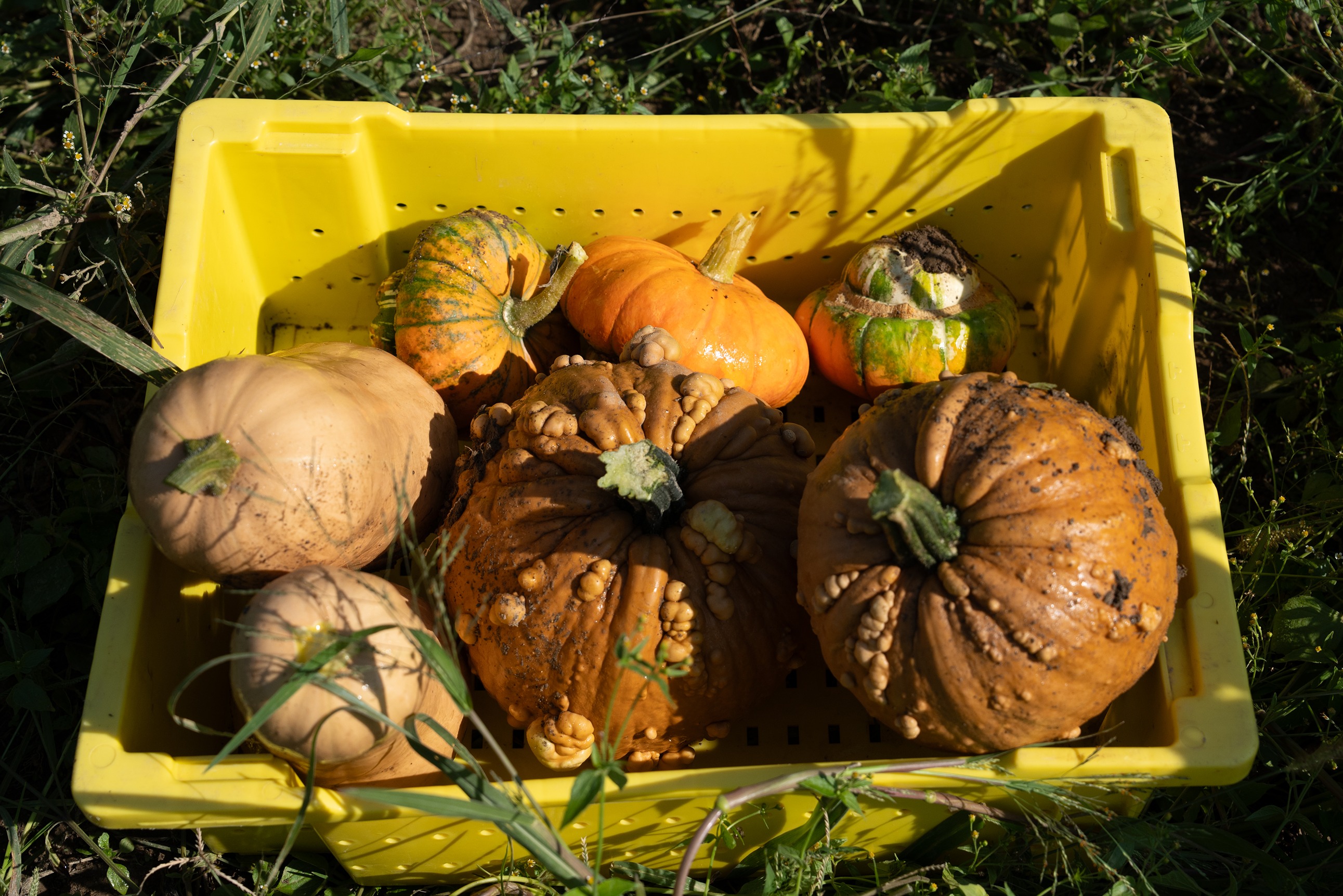Scientific secrets to the perfect pumpkin
Pumpkins gain national spotlight every October. And, every year, Indiana pumpkin pickers trudge through muddy, browning fields searching for the perfect pumpkin to take home. The secret to the perfect fall fruit and a high yield? Good weather, low disease rates and managed pests.
Weather
Weather affects pumpkin yield as soon as planting time.
“You want it dry enough to plant so that you're not mucking the plants in, but wet enough so that seeds will germinate and get established without drying out,” said Liz Maynard, clinical engagement professor of horticulture and landscape architecture.
Later in the season, too little rain or too hot weather can cause problems with flowering and fruit production while too much rain can lead to root rot and disease, Maynard said.
“The variety of pumpkin can make a difference in how much weather affects the plant,” Maynard noted, talking about her research on the effects of irrigation on pumpkin production.
Disease
Even when weather is good, disease can still strike and reduce pumpkin yield or quality.
This year, there were no major disease outbreaks, but common diseases still plagued some fields, according to César Escalante, a clinical assistant professor in the Department of Botany and Plant Pathology who specializes in vegetable pathology.
“I have seen infection of bacterial leaf spot late in the season, but that is not going to affect the yield in terms of pumpkin size, just in quality,” Escalante said. “If this bacterium gets into the pumpkins, they are not going to look good.”

Escalante also noted the presence of Phytophthora fruit rot, a disease caused by a fungus-like pathogen — called an oomycete — that breaks down pumpkin fruit. Although water can be good for plants’ growth, wet soil provides the perfect environment for the destructive oomycete to grow and multiply.
“Phytophthora fruit rot can be devastating,” Maynard said. “It can kill the plants entirely, or it can get on the fruit and cause it to rot, which can have a significant effect on yield.”
Escalante said viral infections are rare, but one type of virus, Potyviruses, can spread to pumpkin plants through insect damage.
Pests
Laura Ingwell, assistant professor of entomology, says pumpkin plants have four common insect foes: squash vine borers, squash bugs, aphids and cucumber beetles. Often, insect damage only diminishes the quality of the pumpkins, not the quantity. Sometimes, however, insect damage can inhibit fruit production and, as a result, decrease yield.
Take, for example, cucumber beetles. “Cucumber beetles like to mate in the flowers,” Ingwell said. “If there’s enough of them to degrade or destroy the flower, you won’t get fruit. Immature beetles in the soil will feed on the rind, or the outside of the pumpkin fruit, and create holes. These holes give pathogenetic organisms an opportunity to enter the fruit and cause rot.”
Not all bugs are bad. Bumblebees, squash bees and other insects pollinate the flowers, which leads to fruit production. Other bugs, like spiders, ground beetles and parasitic wasps, help to control the pest population, assuming that their populations were left untouched by pesticides.
For the casual pumpkin patch roamer, the science of the perfect pumpkin may go unnoticed, but the growers behind the fruit know the secrets to what made the fall-favorite fruit turn from seed to sellable.






